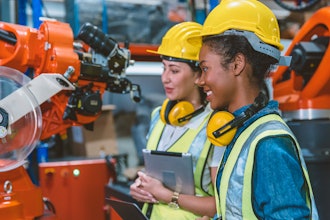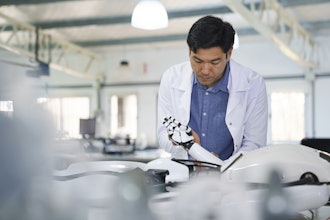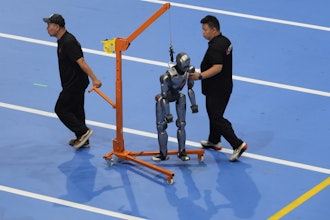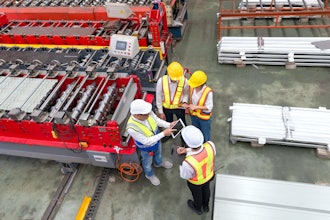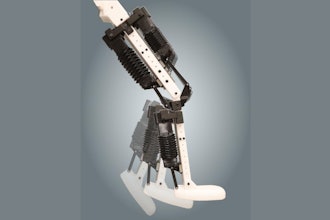There’s a saying in manufacturing: a solid business finds ways to work smarter, not harder.
And with the advent of industrial automation – that’s taking place at many levels.
But a recent study published in the scientific journal, "Frontiers in Robotics and AI" suggests there may be some unique gaps in this theory: they say humans who work with robots may actually be more likely to slack off while on the job.
Most Read on IEN:
- Lack of Preventative Maintenance Led to Explosion at Grain Processing Facility
- Yuengling Wants In On Bud Light Fallout
- Podcast: Kia's 'Wake-Up Call'; Old Toilet Factory Closes; Tesla's Price Cuts
- Tyson Acquires Stake in Insect Ingredients Company
The authors of the study describe the virtues and challenges of teamwork. While these group projects can motivate people to perform, they can also enable people to hide behind the work of others, letting the strongest and most motivated carry the weight. When your colleague in a team environment is actually machined steel and computer chips, maybe you’re happy to let them do the heavy lifting.
This plays out in an experiment where researchers asked workers to hunt down defects in circuit boards. Half of them were told that the boards were inspected already by a robot who was named, inexplicably, Panda. The other group was told that their boards had not been inspected yet by anyone or anything.
The study notes that the participants who believed they had a robot counterpart spotted fewer errors in the parts, despite spending just as much time on the task.
Ultimately, the researchers describe these results as a case of “social loafing” – where humans take suboptimal actions because they know someone will take care of them. They called the task-related performance a “looking but not seeing” effect, where their entrenched trust in the bot’s performance means they don’t prioritize their own. Interestingly, the underperforming workers felt just as responsible for the task – and satisfied with their work – as the control group, who in fact performed much better.
That said, the researchers acknowledge this can take place in human teams as well, pointing out similar findings pointing to reduced effort they refer to as “redundant quality control.”
The experts say the study should serve as a cautionary tale to manufacturers and distributors, pointing out that rapidly automating industrial settings could lead to complacency around safety as it could cause humans to overlook basic protocols.
But other experts might beg to differ: according to a study published last year titled Industrial Robots, Workers’ Safety, and Health, the implementation of robotics in manufacturing between 2005-2011 actually resulted in “a reduction in injury rates at manufacturing firms by 1.75 injuries per 100 full-time workers.”












